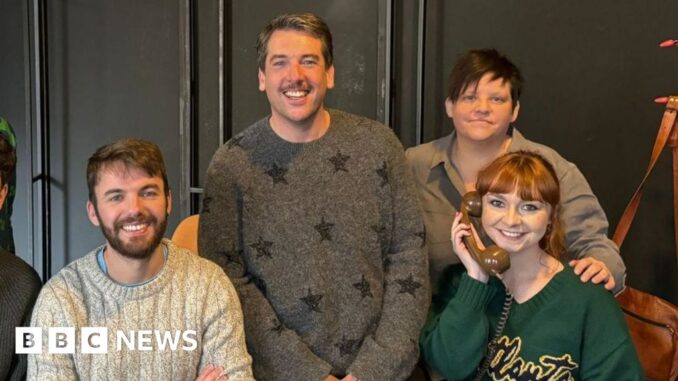
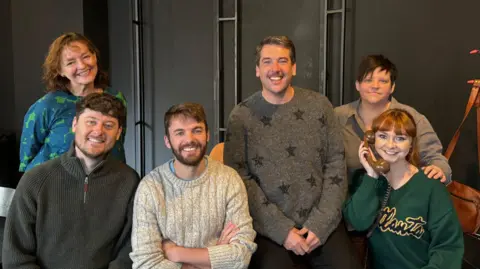 BBC
BBCAmongst the noise of chaos that dominated the soundscape in Northern Ireland during the 1970s, peace for some could be found at the end of the telephone line.
Cara-Friend is a befriending and support service set up by volunteers in 1974 to help LGBTQ communities find connection within the conflict.
A Belfast theatre company is marking the 50th anniversary of the helpline with a UK and Ireland tour of an acclaimed play.
Callings, written by Dominic Montague, is a drama set in the Belfast offices of Cara-Friend at a time when Northern Ireland was the only part of the UK where “homosexual acts between consenting adults” remained a criminal offence.
The play brings to life a collection of real-life phone calls and letters submitted in the 1970s and 80s which have been preserved by the public records office (PRONI).
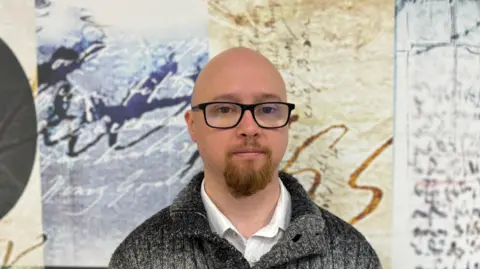
‘Gay people were living in a lot of fear’
The play is set five years after the helpline was set up, on the eve of the decriminalisation of homosexual activity in Northern Ireland.
In 1981, Jeffrey Dudgeon won a landmark legal case against the European Court which ruled that the law was in breach of the human right to a private life.
Until that point the punishment was up to 10 years in prison.
Adam Murray, from Cara-Friend, said “gay people were living in a lot of fear in Northern Ireland.
“What Cara-friend was doing was providing vital support for people who felt scared, alone and isolated.”
‘We had 150 letters in the first year’
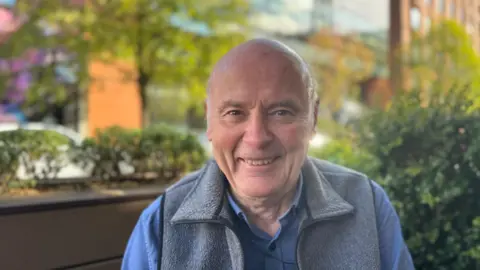
Doug Sobey, one of the founding members of Cara-Friend told BBC News NI: “You can imagine the courage that people would have to have, to put their name on a letter saying that they were gay and sending it off to an unknown organisation.
“We had 150 letters in the first year, and in 1976 we set up a telephone helpline.”
He added that during the first wave of phonecalls, there was so many coming in that the phone line could not cope with the volume.
He described it as “just the beginning of a social life for gay people here in Northern Ireland.”
The helpline still exists today.
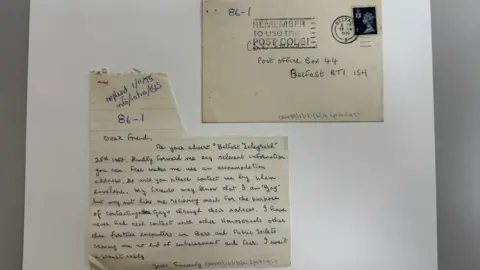
‘Service as needed as ever’
Adding to the backdrop of The Troubles, the orgnanisation said headlines and political campaigns left gay people in Northern Ireland with little else to turn to than the helpline.
Play director, Paula McFetridge from the Kabosh Theatre Company told BBC News NI that despite laws and attitudes towards gender and sexuality having changed so much, the “service is as needed as ever” because “unfortunately there is still an incredible amount of homophobia in the north”.
“The play seeks to highlight how far we have come, but also how far we still have to go,” she added.
‘Love and relationships’
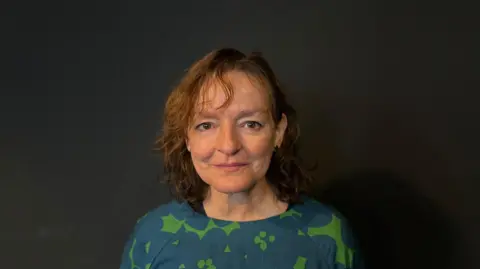
Ms McFetridge highlighted the importance of the political and cultural context of the time.
She said that a political and religious campaign, led by Ian Paisley called Save Ulster from Sodomy effectively “lambasted the gay community”.
“You would consider people who set up helplines like this to be activists, but at that time these were ordinary individuals.
“We need to tread a very fine line about marking those moments when the volunteers faced terrible threats, but also celebrating those moments when people made connections.
“At the very heart of the play is a drive and a heart to talk about love and relationships,” she added.
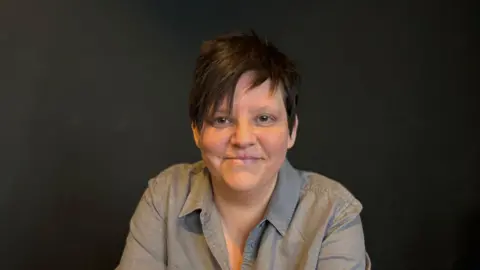



Be the first to comment